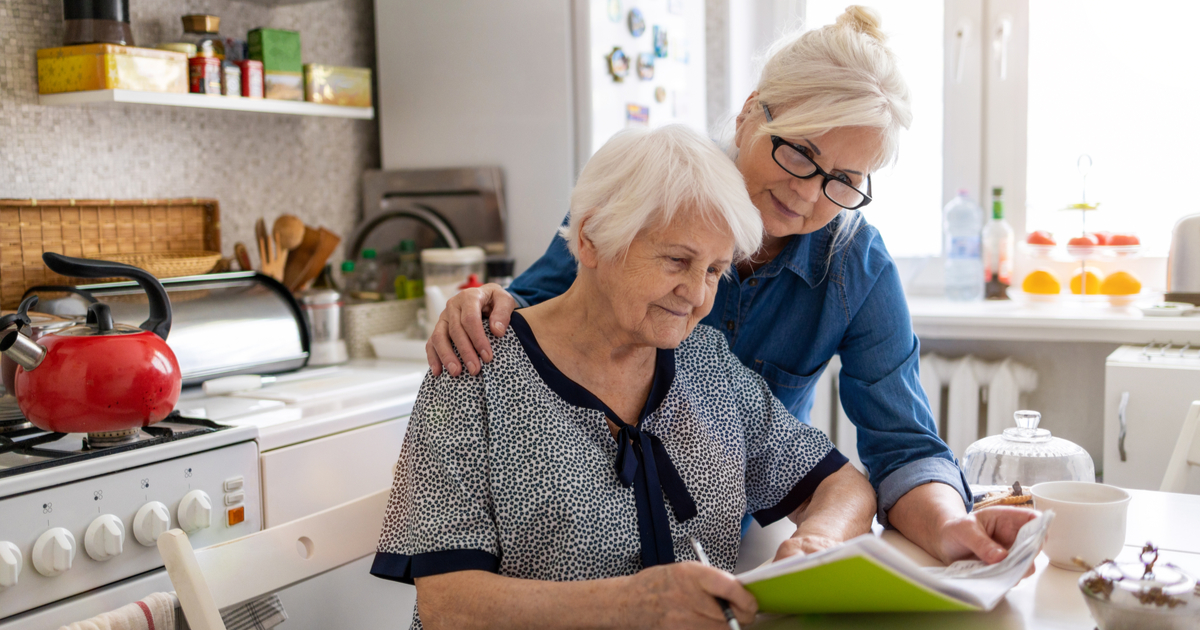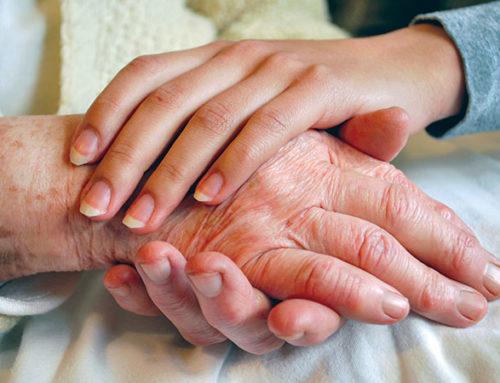An estimated seven million Americans live with some form of dementia, most of which are aged 65+. Watching an aging loved one battle dementia can be emotional and heartbreaking for everyone. As their cognitive decline progresses, behaviors like forgetfulness, confusion, and wandering off are common. As a concerned friend or relative, ensuring that your loved one maintains their quality-of-life starts with understanding the early warning signs of dementia. Using this guide as a reference will help ensure that your senior gets the care they deserve.
What is Dementia?
The term “dementia” describes a group of symptoms that affect memory, social skills, and cognitive abilities in ways that interfere with a person’s daily activities. Dementia isn’t one specific disease, but it can be caused by several different diseases.
Dementia is typically caused by damage to or loss of nerve cells and their connections to the brain. Depending on the area of the brain that’s damaged, dementia can affect people differently and cause different symptoms.
Alzheimer’s disease is the most common cause of progressive dementia in older adults. And even though memory loss is typically caused by dementia, memory loss itself can have different causes. Having memory loss alone doesn’t mean that your loved one has dementia, although it is often one of the earliest signs of the condition.
Fast Facts About Dementia
Based on data compiled by the National Institute on Aging, these are some current dementia trends in the United States:
- By 2030, more than 9 million Americans could have dementia.
- By 2040, that number is projected to be nearly 12 million.
- Non-Hispanic, older white adults are less likely to develop dementia than most other racial and ethnic groups.
- Dementia is slightly more common in older women than men.
- Approximately 3% of adults ages 70 to 74 were diagnosed with dementia in 2019, compared to 22% of adults ages 85 to 89 and 33% of adults ages 90 and older.
Common Dementia Behaviors
Although they vary by individual, someone dealing with mild dementia will typically exhibit one or more of these behaviors:
Cognitive behaviors
- Memory loss usually noticed by someone else
- Difficulty communicating or finding the right words
- Getting lost frequently in familiar places or while driving
- Difficulty reasoning, problem-solving or handling complex tasks
- Acting confused and disoriented
- Trouble planning and organizing
- Motor function and coordination difficulties
Psychological behaviors
- Depression
- Anxiety
- Inappropriate behavior
- Personality changes
- Paranoia
- Agitation
- Hallucinations
How to Know for Sure
Depending on the cause, some dementia symptoms might be reversible. Early detection holds the key to ensuring that your aging loved one gets the ongoing care they deserve.
If you suspect that your loved one may have dementia, the first step is to schedule them an appointment with their primary care doctor. Also, start a daily journal and use it to record your loved one’s behaviors. During the office visit, share what you’ve observed with their doctor.
There is no one test to determine if someone has dementia. Doctors diagnose Alzheimer’s and other types of dementia based on a careful medical history, a physical examination, laboratory tests, and the characteristic changes in thinking, day-to-day function, and behavior associated with each type.
Caring for a Senior with Dementia
If your loved one has been diagnosed with dementia, there are several ways to help them enjoy a happier, healthier, more productive life, including:
- Encourage them to exercise for at least 20 minutes, 3 to 5 times a week.
- Serve them “brain-healthy” foods.
- Stimulate their mind with games, puzzles, crafts, and other activities.
- Keep the lines of communication open by learning new communication skills.
- Ask for help when you need to take a break from family, friends, community volunteers, and professional caregivers.
Your Trusted Senior Care Partner in Philadelphia
Caring for an aging loved one with dementia isn’t easy, especially when live far away. At Elder Home Care, we understand that having a caregiver in your home is a decision that requires trust. As your trusted senior care partner, our experienced caregivers are trained to provide professional, reliable care in the same respectful and friendly manner that they would treat their own family members.
Our commitment is to help your aging loved ones comfortably maintain their independence while treating them with respect, compassion, and empathy. To schedule a free, no-obligation assessment today for a senior in Nassau, Suffolk, Queens, Manhattan, Westchester, and the greater Philadelphia, PA and Austin, TX areas, visit Elder Home Care at: www.ehcus.com.






